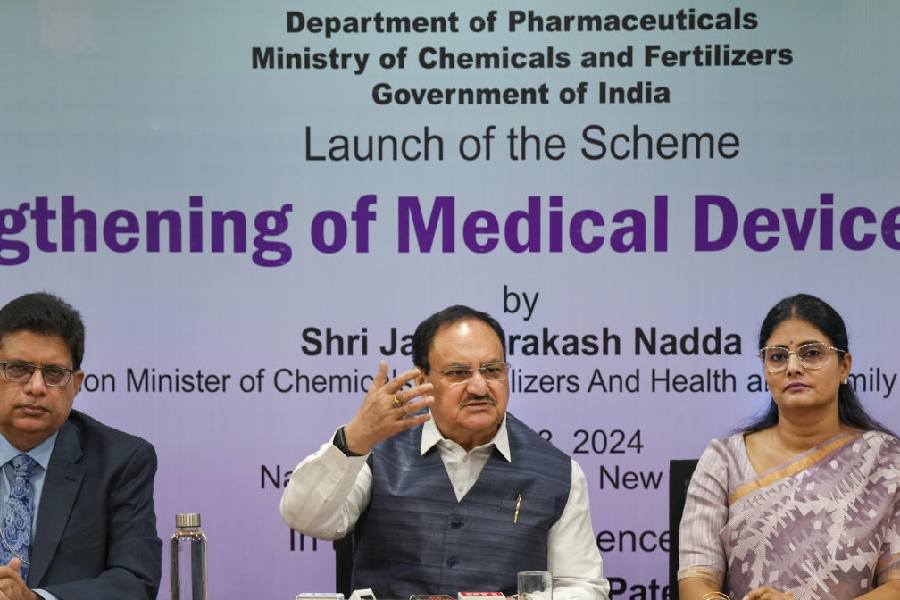The Centre on Friday announced a multi-pronged ₹500-crore initiative to strengthen the domestic medical device industry, earmarking funds to bolster the industry’s manufacturing infrastructure, human resources, clinical studies capacity and promotional activities.
The initiative, split into five sub-schemes, will fund common infrastructure facilities such as research and development labs, activities to reduce dependence on imported components, master's degrees or short-term courses, and support animal tests and clinical studies on homegrown medical devices.
Launching the initiative, Union chemicals and fertilisers minister J.P. Nadda said it would be a “game-changer” for the domestic medical device industry. “These interventions may look small, but the outcomes are big.”
The initiative comes amid long-standing concerns that India imports 65-75 per cent of the medical devices used in the country and efforts to reduce import dependence. India's medical device market is currently valued at around $14 billion and is expected to grow to $30 billion by 2030.
The ministry has earmarked ₹110 crore for a sub-scheme to strengthen infrastructure through design and testing centres, research and development labs, and animal testing facilities for manufacturers that are located within industrial clusters.
A second sub-scheme with an outlay of ₹180 crore will provide subsidies of up to 20 per cent with a maximum cap of ₹10 crore per project to efforts by domestic industry players to reduce dependence on imported components for medical devices.
The ministry has pledged ₹100 crore to help established companies as well as start-ups with financial support of up to ₹5 crore for animal studies and clinical investigations of medical devices they have developed. This sub-scheme is expected to benefit the industry by addressing a long-standing need for support in clinical studies that industry representatives say require significant investment levels.
Industry executives have applauded the initiative.
“We are delighted with this announcement,” said Rajiv Nath, coordinator of the Association of Indian Medical Device Industry. “Indian device makers who had become traders and importers will now again be motivated to become actual manufacturers and produce complete products.”
The ₹100-crore sub-scheme focused on human resources will provide financial support to educational institutions — up to ₹21 crore for master's courses in central government institutions, and ₹10,000 per candidate for short-term courses and ₹25,000 per candidate for diploma courses in approved institutions. This is expected to build human resources capacity for the domestic industry.
The government has also earmarked ₹10 crore to help the domestic industry in promotional activities through conferences or exhibitions.

